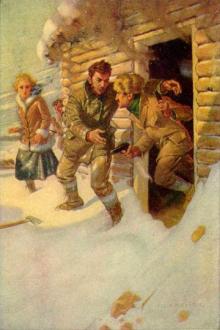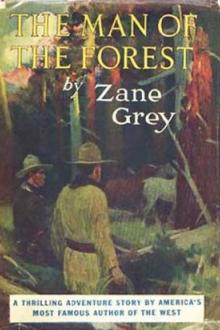Astoria; Or, Anecdotes of an Enterprise Beyond the Rocky Mountains by Irving (top romance novels .TXT) 📗

- Author: Irving
Book online «Astoria; Or, Anecdotes of an Enterprise Beyond the Rocky Mountains by Irving (top romance novels .TXT) 📗». Author Irving
After this signal act of vengeance, Captain Metcalf sailed from Mowee, and made for the island of Owyhee, where he was well received by Tamaahmaah. The fortunes of this warlike chief were at that time on the rise. He had originally been of inferior rank, ruling over only one or two districts of Owyhee, but had gradually made himself sovereign of his native island.
The Eleanor remained some few days at anchor here, and an apparently friendly intercourse was kept up with the inhabitants. On the 17th March, John Young obtained permission to pass the night on shore. On the following morning a signal-gun summoned him to return on board.
He went to the shore to embark, but found all the canoes hauled up on the beach and rigorously tabooed, or interdicted. He would have launched one himself, but was informed by Tamaahmaah that if he presumed to do so he would be put to death.
Young was obliged to submit, and remained all day in great perplexity to account for this mysterious taboo, and fearful that some hostility was intended. In the evening he learned the cause of it, and his uneasiness was increased. It appeared that the vindictive act of Captain Metcalf had recoiled upon his own head. The schooner Fair American, commanded by his son, following in his track, had fallen into the hands of the natives to the southward of Tocaigh Bay, and young Metcalf and four of the crew had been massacred.
On receiving intelligence of this event, Tamaahmaah had immediately tabooed all the canoes, and interdicted all intercourse with the ship, lest the captain should learn the fate of the schooner, and take his revenge upon the island. For the same reason he prevented Young from rejoining his countrymen. The Eleanor continued to fire signals from time to time for two days, and then sailed; concluding, no doubt, that the boatswain had deserted.
John Young was in despair when he saw the ship make sail; and found himself abandoned among savages;-and savages, too, sanguinary in their character, and inflamed by acts of hostility. He was agreeably disappointed, however, in experiencing nothing but kind treatment from Tamaahmaah and his people. It is true, he was narrowly watched whenever a vessel came in sight, lest he should escape and relate what had passed; but at other times he was treated with entire confidence and great distinction. He became a prime favorite, cabinet counsellor, and active coadjutor of Tamaahmaah, attending him in all his excursions, whether of business or pleasure, and aiding in his warlike and ambitious enterprises. By degrees he rose to the rank of a chief, espoused one of the beauties of the island, and became habituated and reconciled to his new way of life; thinking it better, perhaps, to rule among savages than serve among white men; to be a feathered chief than a tarpaulin boatswain. His favor with Tamahmaah, never declined; and when that sagacious, intrepid, and aspiring chieftain had made himself sovereign over the whole group of islands, and removed his residence to Woahoo, he left his faithful adherent John Young in command of Owyhee.
Such is an outline of the history of Governor Young, as furnished by himself; and we regret that we are not able to give any account of the state maintained by this seafaring worthy, and the manner in which he discharged his high functions; though it is evident he had more of the hearty familiarity of the forecastle than the dignity of the gubernatorial office.
These long conferences were bitter trials to the patience of the captain, who had no respect either for the governor or his island, and was anxious to push on in quest of provisions and water. As soon as he could get his inquisitive partners once more on board, he weighed anchor, and made sail for the island of Woahoo, the royal residence of Tamaahmaah.
This is the most beautiful island of the Sandwich group. It is forty-six miles in length and twenty-three in breadth. A ridge of volcanic mountains extends through the centre, rising into lofty peaks, and skirted by undulating hills and rich plains, where the cabins of the natives peep out from beneath groves of cocoanut and other luxuriant trees.
On the 21st of February the Tonquin cast anchor in the beautiful bay before the village of Waititi, (pronounced Whyteetee.) the abode of Tamaahmaah. This village contained about two hundred habitations, composed of poles set in the ground, tied together at the ends, and thatched with grass, and was situated in an open grove of cocoanuts. The royal palace of Tamaahmaah was a large house of two stories; the lower of stone, the upper of wood. Round this his body-guard kept watch, composed of twenty-four men in long blue cassocks, turned up with yellow, and each armed with a musket.
While at anchor at this place, much ceremonious visiting and long conferences took place between the potentate of the islands and the partners of the company. Tamaahmaah came on board of the ship in royal style, in his double pirogue. He was between fifty and sixty years of age, above the middle size, large and well made, though somewhat corpulent. He was dressed in an old suit of regimentals, with a sword by his side, and seemed somewhat embarrassed by his magnificent attire. Three of his wives accompanied him. They were almost as tall, and quite as corpulent as himself; but by no means to be compared with him in grandeur of habiliments, wearing no other garb than the pan. With him, also, came his great favorite and confidential counseller, Kraimaker; who, from holding a post equivalent to that of prime minister, had been familiarly named Billy Pitt by the British visitors to the islands.
The sovereign was received with befitting ceremonial. The American flag was displayed, four guns were fired, and the partners appeared in scarlet coats, and conducted their illustrious guests to the cabin, where they were regaled with wine. In this interview the partners endeavored to impress the monarch with a sense of their importance, and of the importance of the association to which they belonged. They let him know that they were eris, or chiefs, of a great company about to be established on the northwest coast, and talked of the probability of opening a trade with his islands, and of sending ships there occasionally. All this was gratifying and interesting to him, for he was aware of the advantages of trade, and desirous of promoting frequent intercourse with white men. He encouraged Europeans and Americans to settle in his islands and intermarry with his subjects. There were between twenty and thirty white men at that time resident in the island, but many of them were mere vagabonds, who remained there in hopes of leading a lazy and an easy life. For such Tamaahmaah had a great contempt; those only had his esteem and countenance who knew some trade or mechanic art, and were sober and industrious.
On the day subsequent to the monarch’s visit, the partners landed and waited upon him in return. Knowing the effect of show and dress upon men in savage life, and wishing to make a favorable impression as the eris, or chiefs, of the great American Fur Company, some of them appeared in





Comments (0)